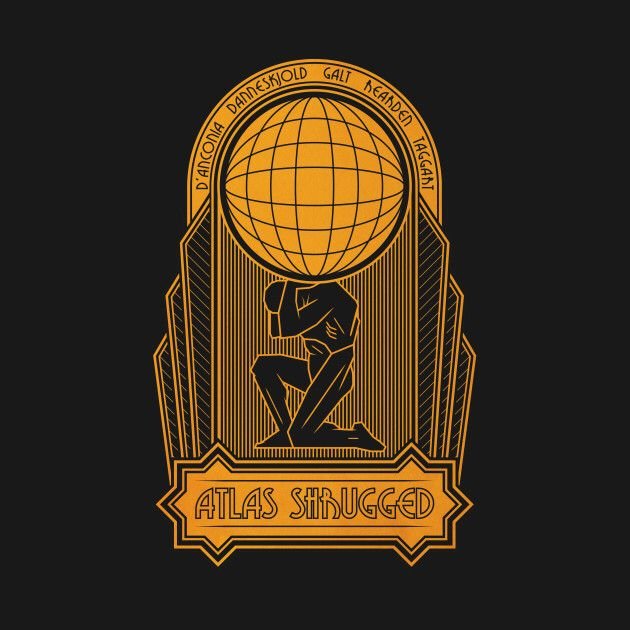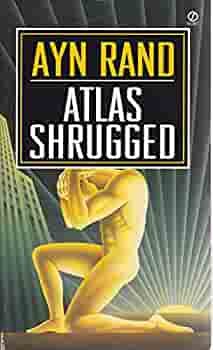Atlas Shrugged

dystopian Fiction
“I swear by my life and my love of it that I will never live for the sake of another man, nor ask another man to live for mine.”
What is a Dystopia?
Derived from the Greek dys (“ill” or “bad”) and topos (“place”), the word Dystopia means “A Bad Place.”
A Dystopia is normally an imagined state or society in which great suffering or injustice occurs, typically one that is totalitarian by nature and in which information, independent thought, and freedom are restricted, censored, or ignored by the masses.
An Iconic Dystopian Fiction—Atlas Shrugged Summary
In a form of a corporate dystopian world that is deteriorating in economic conditions, Dagny Taggart, VP of operations at Taggart Transcontinental, is working to uphold the last booming industrial area in the country through repairing a transcontinental railroad line. Her efforts are hampered though by the fact that many of the country’s most talented entrepreneurs are not just retiring, but they are disappearing.
Through a roller coaster of economic crisis, corporate corruption, and state totalitarian involvement, Taggart finds herself fighting against the massive bureaucratic institutions, and her once antagonistic reactions to the libertarian group seeking to end government regulation shifts as she encounters the utopian community, Galt’s Gulch, whose members regard individualism and self-determination the highest value and ideal rather than collective responsibility.
Rand feared that Collective Thought and a lack of Individualism would ruin us
The days where the fiction stayed in the books is in the past:
“Contradictions do not exist. Whenever you think that you are facing a contradiction, check your premises. You will find that one of them is wrong.”
What is Atlas Shrugged About?
Atlas Shrugged has been propped up as an iconic piece of conservative literature for years now. With the clear theme warning about the evils of collectivism, Rand’s personal philosophies and experiences bleed through the page as she grew up and around Russian communism which nearly killed her family as her father’s pharmacy was nationalized by the communist party of the country. Ayn Rand being a proponent of individualism, the idea of free thought was appealing to her, and as she explored the possibilities that America offered through her studies and love of Victor Hugo, in 1925 she immigrated with a temporary visa before marrying her husband of fifty years, Frank O’Connor.
The rise of Communism in Russia heavily influenced her work as her distaste for the collectivist ideology. At the end of World War II and with the fall of the totalitarian threat of the Nazis, much of Europe fell under this collectivist communism, forcing millions to sacrifice personal interest for the good of the state, threatening both personal and intellectual freedoms. This wave was followed quickly by China, Korea, and Cuba, and although the United States opposed Communism in during the era known as the Cold War, Marxism still had strong support among American intellects, academics, sophists, and any who favored the both the expansion of the welfare state and increased regulation of free enterprise and private industry.
Atlas Shrugged is Rand’s argument against all of those collectivist views.
In both fact and fiction, Utopias will always propagate Dystopias.
Kawika Miles is an American dystopian author who indulges in conversations of faith, family, and freedom. As a long time patriot, Kawika understands that only liberty minded individuals can save the future from the dystopian nightmare it is tumbling down, protecting the sanctity of life and individual independence. Read his debut novel Saga of the Nine: Origins today!












